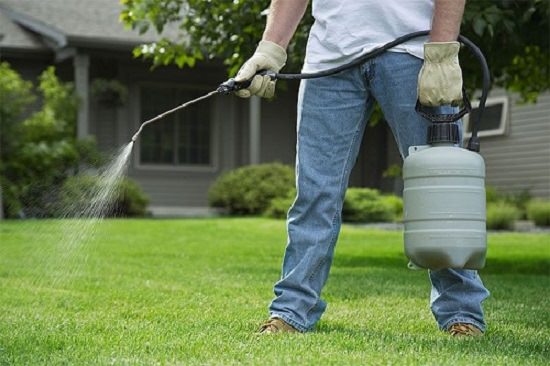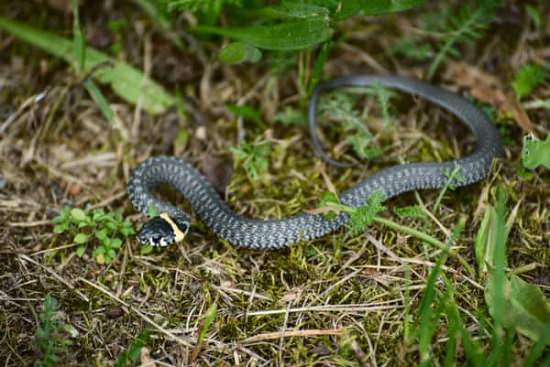Does Ammonia Repel Snakes? Unleash the snake-repelling magic of ammonia: Safeguard your surroundings with its aromatic might!
Does Ammonia Repel Snakes
Ammonia is a popular staple that people believe can repel snakes due to its strong odor. Snakes have a highly developed sense of smell, and certain scents can deter them from entering some areas. The pungent smell of ammonia is unpleasant to snakes, potentially causing them to avoid treated areas.
It’s important to note that the effectiveness of ammonia as a snake repellent is anecdotal and not scientifically proven. Different snake species may have varying sensitivities to certain odors, and individual snakes may react differently.
Additionally, while ammonia may have a repelling effect initially, snakes may become accustomed to the smell over time, reducing its effectiveness as a long-term deterrent. Therefore, it’s essential to use additional measures, such as removing attractants and sealing entry points, to enhance the effectiveness of snake prevention efforts.
It’s advisable to consult with local wildlife experts or pest control professionals for more reliable and effective snake prevention methods tailored to your specific situation.
How To Use Ammonia To Repel Snakes
- Safety precautions: It’s crucial to prioritize safety when handling ammonia. Wear protective gloves, goggles, and clothing to prevent any direct contact with the chemical.
- Locate snake-prone areas: Identify the areas where snakes are commonly seen or where you suspect their presence. These areas may include gaps in fences, around foundations, or near entry points to your property.
- Dilute ammonia: Mix equal parts of household ammonia and water in a spray bottle or a container. This diluted mixture is typically recommended to reduce the potential harm caused by concentrated ammonia.
- Apply the mixture: Spray or pour the ammonia mixture along the perimeter of the snake-prone areas, such as fences, foundations, or entry points. The strong smell of ammonia is believed to deter snakes from approaching the treated areas.
- Repeat as necessary: Reapply the ammonia mixture regularly, especially after rainfall or when the scent has dissipated. Snakes may become accustomed to the smell over time, so consistent application may be needed.
Remember that using ammonia as a snake repellent is not a guaranteed method, and its effectiveness can vary. It’s essential to take additional measures, such as removing potential snake hiding spots, keeping the surrounding area clean, and consulting with local wildlife experts or pest control professionals for comprehensive solutions to snake-related concerns.
Snakes Around Home: What Invites Them?
- Food sources: An abundance of prey can attract snakes. If there are rodent populations or other small animals in and around your home, it can draw snakes seeking a food source.
- Shelter and hiding spots: Snakes look for safe and secluded areas to hide and rest. Your property may offer suitable hiding spots, such as tall grass, dense vegetation, woodpiles, or cluttered areas, which can attract snakes.
- Water sources: Snakes require water for survival. If you have ponds, streams, leaky pipes, or standing water around your home, it can serve as a water source and attract snakes.
- Warmth and shelter: Snakes are ectothermic and rely on external heat sources to regulate their body temperature. Your home, particularly during cooler seasons, may provide warmth through sunny areas, crawl spaces, or gaps in foundations, attracting snakes seeking thermoregulation.
- Structural openings: Small gaps or cracks in the exterior of your home, foundation, walls, or gaps around windows and doors can serve as entry points for snakes.
- Surrounding habitat: The natural habitat surrounding your home can also influence snake presence. If your property is close to wooded areas, grasslands, or marshy regions, the likelihood of snakes venturing into your property may increase.
Snake-Proof Your Home
1. Seal Entry Points
Inspect your home’s exterior and seal any gaps or openings that snakes could use to enter. Focus on areas around pipes, vents, doors, windows, and foundations. Use caulk, weatherstripping, or mesh screens to close off potential entry points.
2. Trim Vegetation
Maintain a clear and tidy yard by regularly trimming grass, shrubs, and bushes. Trim tree branches that hang close to your house to prevent snakes from easily accessing your roof or upper floors.
3. Remove Debris
Keep your property free of clutter, such as piles of wood, rocks, or unused items. These can provide hiding places for snakes and attract their prey.
4. Secure Outdoor Structures
Ensure that sheds, garages, and other outdoor structures have tight-fitting doors and windows. Repair any cracks or gaps in the structure to prevent snakes from entering.
5. Install a Snake-Proof Fence
Consider installing a fence around your property, especially if you live in an area with a high snake population. Use a fence with tight mesh or solid construction, burying it a few inches underground to deter snakes from burrowing under.
6. Eliminate Food Sources
Control rodent populations around your home by keeping garbage cans tightly sealed, removing bird feeders that attract rodents, and maintaining clean outdoor eating areas.
7. Maintain Proper Drainage
Fix any leaks or standing water issues around your home. Water sources, fresh or dirty, attract snakes sources, so eliminating excess moisture can discourage them from staying nearby.
8. Educate Yourself
Learn about the types of snakes that are common in your area and their habits. This knowledge can help you take appropriate preventive measures and understand how to respond if you encounter a snake.
While these steps can help minimize the likelihood of snakes entering your home, it’s important to remember that no method is foolproof. If you have persistent snake issues or encounter a snake inside your home, it’s advisable to contact local wildlife experts or pest control professionals for safe and effective removal methods.



